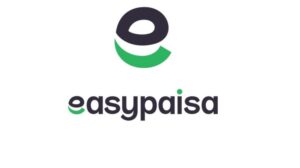Islamabad, Apr 9, 2025: The Lahore High Court (LHC) Rawalpindi Bench has directed the National Database and Registration Authority (NADRA) and the emigration department to provide detailed reports regarding the controversial Chaiwala’s CNIC Block and passport of globally recognized figure Arshad Khan, famously known as “Chaiwala”.
The directives were issued in a written order by Justice Jawad Hassan, who set the next hearing for April 17.
The court ordered that formal notices be served to the respondents and instructed the relevant departments to submit para-wise comments along with a comprehensive report before the scheduled date.
Senior officials from the implicated departments have also been summoned to appear in court with all relevant documentation to justify their actions.
READ MORE:
The Fresh Prince Meets Sardaar Ji in Epic Cultural Cross-Over
Gilani recounted that Khan, once an ordinary tea vendor in Islamabad, rose to international fame after a candid photograph of him went viral on social media, transforming his life overnight.
However, Gilani argued, this remarkable journey is now in jeopardy due to the abrupt and unjustified cancellation of his official identity documents actions allegedly based on unverified rumors spread by a news channel.
As a result, Khan’s livelihood and business prospects, both in Pakistan and internationally, face severe disruption.
The government’s counsel raised preliminary objections regarding the admissibility of the case, asserting that the petitioner failed to produce sufficient documentation proving his Pakistani citizenship. Consequently, NADRA’s move to block his CNIC and passport was, according to them, lawful.
READ MORE:
Mission Impossible Final Reckoning Marks the Epic End of a Legacy
He condemned NADRA’s demand for pre-1978 residency proof as unreasonable and malicious, emphasizing that such requirements were causing irreparable damage to his client’s professional standing and personal dignity.
He further cited multiple constitutional provisions to back his claims: Article 9 ensures the right to livelihood; Article 18 upholds the right to trade and conduct business; Article 14 protects human dignity and privacy; and Article 4 guarantees legal protection from arbitrary state actions.
Gilani argued that NADRA’s move to block the identity documents lacked any legal basis and violated Section 18 of the National Database and Registration Authority Ordinance, 2000.
He requested the court to restore Arshad Khan’s CNIC and passport to prevent further damage to his reputation and rights as a lawful citizen.
As the matter proceeds, all eyes are on how the authorities will justify their actions in court a case that raises broader questions about digital identity, due process, and the rights of everyday citizens who rise to fame in the digital age.









